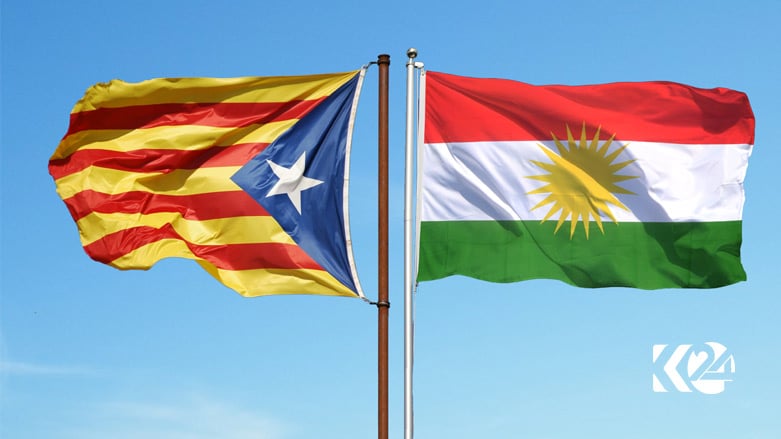“What seems to matter more is not the declaration of independence but rather the recognition of this declaration”
George Kyris of the University of Birmingham writes for The Conversation:
Independence referendums in Catalonia and Iraqi Kurdistan have brought to the fore one of the most fundamental questions in world politics and history: what is a state? Who decides who can have a state and where? They are questions that have ideologically divided society and geographically divided the world.
As Madrid moves to suspend Catalan autonomy, separatism dreams in the region are crushed, for now. The decision by the Spanish government shows that not only did the referendum fail to give birth to a new state, but might actually risk undermining Catalonia’s position. Breaking from Spain was always going to be a Sisyphean task, for two main reasons.
First, Spain is able to use its clout in a range of ways against Catalan efforts for separation. Its membership of international organisations, like the European Union and the United Nations, should allow it to effectively veto recognition of a Catalan state and could well pressurise other states to condemn the declaration of independence.
See also Catalonia’s Independence: The Case For and Against From Catalans
Iraq, Turkey, and Iran have also already started working to oppose Kurdistan’s move towards statehood since a disputed referendum on September 25. Especially after developments in Kirkuk, it has started to look like a more viable option for the Kurds to use their vote for independence as a springboard towards negotiations with Baghdad for a new arrangement.
Recognition
States tend to be reluctant to recognise unilateral efforts for separation, for fear of setting a dangerous precedent.
In 1992, the then UN Secretary General Boutros Boutros-Ghali encapsulated this reluctance very succinctly when he suggested:
If every ethnic, religious or linguistic group claimed statehood, there will be no limit to fragmentation, and peace for all would become even more difficult to achieve.
This is why a few EU states which have their own separatist issues have not recognised the 2008 declaration of independence of Kosovo, despite the fact the former Serbian province is now recognised by the majority of world states. Unsurprisingly, Spain is one of the states which have refrained from legally recognising Kosovo.
Other groups in Europe and beyond have not managed to imitate Kosovo’s relative success in gaining recognition. In 1983, and after years of conflict, the Turkish Cypriots self-declared independence in the northern part of Cyprus and tried to officially separate from the Republic of Cyprus. Yet, apart from Turkey, no one ever recognised the declaration.
Despite the whole island being part of the EU since 2004, EU law is suspended in north Cyprus, which remains more or less isolated from the rest of the world. This is why British holiday-makers to northern Cyprus need to get a transfer flight via Turkey, while southern Cyprus has direct flights from many UK airports. Cyprus’ membership of the UN and EU makes it all the more difficult for other states to recognise this kind of unsanctioned bid to break away from an existing state.
Elsewhere, the Ukraine crisis witnessed separation efforts and the self-declaration of the Donetsk and Luhansk Republics, which join a longer list of unrecognised breakaway territories in the former Soviet space. Africa, too, has its own share of similar territories, including Western Sahara and Somaliland.
Building Bridges
Yet, being unrecognised does not necessarily mean oblivion in the international system. Taiwan looks much more like a state compared to some of the examples mentioned and is among the world’s largest economies, despite the fact that it is officially recognised only by a small number of states.
One of the ways in which Taiwan has managed to survive relatively well in the system of states is by showing some flexibility in how it promotes itself, such as taking part in the Olympics under the name “Chinese Taipei”. It also has some powerful allies, such as the US, which helps it to develop pretty effective relations with the rest of the world.
So could Catalonia or Kurdistan become a new Taiwan? Working more or less like a state but not being quite recognised as such? In the end, what is more important? To be formally considered a state, or to truly operate as one?
It seems that much more than earned, statehood is something granted. And, with some exemptions, what seems to matter more is not the declaration of independence but rather the recognition of this declaration by a quorum of world states. It is not enough for someone to wish to join the club, you need existing members to allow you to come in.
![]() At the moment, and on the back of a unilateral bid for independence which will unnerve some countries, Catalonia does not seem to have won the hearts of enough club members.
At the moment, and on the back of a unilateral bid for independence which will unnerve some countries, Catalonia does not seem to have won the hearts of enough club members.


Trackbacks/Pingbacks